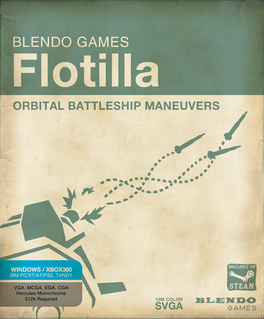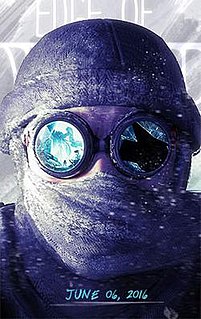Gauntlet or The Gauntlet may refer to:

The Nintendo 64 (N64) is a home video game console developed by Nintendo. The successor to the Super Nintendo Entertainment System, it was released on June 23, 1996, in Japan, on September 29, 1996, in North America, and March 1, 1997, in Europe and Australia. It was the last major home console to use cartridges as its primary storage format until the Nintendo Switch in 2017. As a fifth-generation console, it competed primarily with the Sony PlayStation and the Sega Saturn.
Edge or EDGE may refer to:

The Legend of Zelda: Ocarina of Time is an action-adventure game developed and published by Nintendo for the Nintendo 64. It was released in Japan and North America in November 1998, and in PAL regions the following month. Ocarina of Time is the fifth game in The Legend of Zelda series, and the first with 3D graphics.
Lost may refer to getting lost, or to:
Alternate reality is often a synonym for parallel universes in fiction.

Unity is a cross-platform game engine developed by Unity Technologies, first announced and released in June 2005 at Apple Inc.'s Worldwide Developers Conference as a Mac OS X-exclusive game engine. The engine has since been gradually extended to support a variety of desktop, mobile, console and virtual reality platforms. It is particularly popular for iOS and Android mobile game development and used for games such as Pokémon Go, Monument Valley, Call of Duty: Mobile, Beat Saber and Cuphead. It is considered easy to use for beginner developers and is popular for indie game development.
Cipher Complex is a cancelled stealth action video game that was being developed for the Microsoft Windows, PlayStation 3 and Xbox 360 systems by Edge of Reality. The game was first announced in June 2006, by which time it was reported to already have been in production and self-funded for two years; the title was then signed with Sega in 2007, but in July 2009 it was revealed that the game had been cancelled by the publisher earlier that year after over half a decade of work, as noted in the LinkedIn profile of a former internal producer at the studio. Further details surrounding the cancellation and the game's fate in their entirety remain unclear to this day, as no official announcement regarding its status has been made by either Sega or Edge of Reality, however, more recently, a U.S. federal trademark registration was filed on September 11, 2009, which as of October 19, 2011, has been granted a third extension. While confirming nothing else, this does indicate that Edge of Reality has retained the intellectual property rights to the game.
A ghosthunter is a person who engages in ghost hunting, the process of investigating locations that are allegedly haunted.

Craig Edward Mabbitt is an American singer-songwriter and recording artist. He is the lead vocalist for American rock band Escape the Fate. He was formerly the lead vocalist for the bands Blessthefall and The Word Alive. He is also the current lead vocalist of his side-project band, The Dead Rabbitts.

Ghostbusters: The Video Game is a 2009 action-adventure game based on the Ghostbusters media franchise. Terminal Reality developed the Windows, PlayStation 3, and Xbox 360 versions, while Red Fly Studio developed the PlayStation 2, PlayStation Portable, and Wii versions. The game was released after several delays in development and multiple publisher changes. In North America, all versions of the game were published by Atari, while in Europe, the PlayStation 2, PlayStation Portable, and PlayStation 3 versions were published by Sony Computer Entertainment. A separate game for the Nintendo DS with the same title was developed by Zen Studios and released at the same time, albeit with substantial differences in the gameplay and story.

Amy Hennig is an American video game director and script writer, formerly for the video game company Naughty Dog. She began her work in the industry on the Nintendo Entertainment System, with her design debut on the Super Nintendo Entertainment System game Michael Jordan: Chaos in the Windy City. She later went to work for Crystal Dynamics, working primarily on the Legacy of Kain series. With Naughty Dog, she worked primarily on the Jak and Daxter and Uncharted series.

Flotilla is a 2010 turn-based strategy space combat video game developed by Brendon Chung's studio, Blendo Games. The game was released in March 2010 on Steam for Microsoft Windows and on Xbox Live Indie Games for the Xbox 360. Flotilla was designed with Microsoft's XNA tools, and its development was influenced by animals as well as board games such as Axis and Allies and Arkham Horror. The game takes the player in an adventure through a randomly generated galaxy.

Edge of Nowhere is an action-adventure, virtual reality video game developed by Insomniac Games for Microsoft Windows for the Oculus Rift virtual reality headset. The game released on June 6, 2016. The game is based on the work of H.P. Lovecraft, At the Mountains of Madness.

A virtual reality headset is a head-mounted device that provides virtual reality for the wearer. Virtual reality (VR) headsets are widely used with video games but they are also used in other applications, including simulators and trainers. They comprise a stereoscopic head-mounted display, stereo sound, and head-motion-tracking sensors, which may include devices such as gyroscopes, accelerometers, magnetometers or structured light systems.

Star Wars: Tales from the Galaxy's Edge is a virtual reality adventure game originally released on November 19, 2020 for the Oculus Quest systems. The graphics were designed by ILMxLab.









